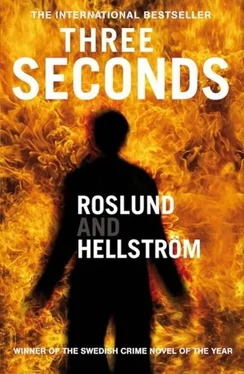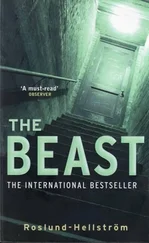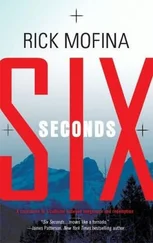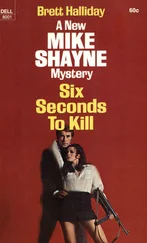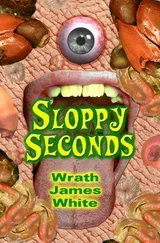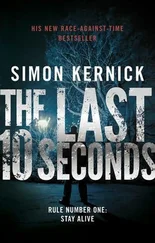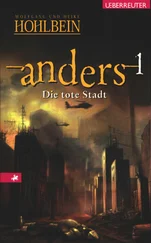Piet Hoffmann sat down on the librarian's chair by the lending desk and waited. He had been here before and borrowed books that weren't popular and were therefore kept in storage in the basement as he had in several other libraries in the small communities close to the country's high security prisons. He had borrowed books from Kumla public library, whose customers included the inmates of Kumla prison, and Sodertalje public library, which had had customers from Hall prison for many years. And when prisoners inside the walls that were only a few hundred meters from the library ordered their books, they were always collected from here, Aspsås library, and what's more, if they were titles from storage, the borrower could be certain to get precisely the book he had ordered.
She was out of breath when she opened the heavy door up from the basement.
"Steep stairs."
She smiled.
"I guess I should perhaps jog a bit more."
Six books on the lending desk.
"Are these okay?"
Hardbacks. Big. Heavy.
"Tulips and poetry."
"Excuse me?"
"Perfect, just as I like them."
The square was windy, relatively sunny, nearly empty. An old lady with a zimmer frame labored over the cobbles, a man of roughly the same age with plastic bags on the handlebars of his bike was rummaging in a rubbish bin with both hands, looking for empty bottles. Piet Hoffmann drove slowly out of the small town, which he would return to in ten days' time, in handcuffs and a secure police van.
"I still want to know how."
"We've already done this three times before."
A closed system with no escape.
An exposed infiltrator, a snitch, as hated in prison corridors as perverts, pedophiles or rapists, always at the bottom of the hierarchy that ruled in European prisons, which gave murderers and major drug dealers their status and power.
"Officially, you will be pardoned. On humanitarian grounds. That doesn't need to be explained in anymore detail. Medical or humanitarian grounds are sufficient for a decision that the Ministry of Justice will then stamp as confidential."
If anything happened. Her promise was all that he had. That, and the things he had prepared himself.
He looked at the clock on the dashboard. Eighteen hours to go.
A few miles out of Stockholm, driving slightly too fast through sleepy suburbs, one of his two mobile phones rang. An irritated woman's voice, one of the nursery teachers from Hagtornsgarden.
Both boys had a temperature.
He drove toward Enskededalen, it was his turn today and the Calpol had stopped working.
A wise woman, a couple of years younger than he was, Hugo and Rasmus had always been safe with her.
"I don't understand it."
The same woman who had phoned him only a couple of days ago about two sick little boys. Now she was sitting in front of him in the office, frowning at him while two warm children waited on a bench out in the playroom.
"That you… both of you… it's just not like you, after all these years, you, if anyone, just wouldn't play that stupid Calpol trick. I just don't understand."
"I'm not quite sure what you're-"
He had started to defend himself as he always did when someone accused him of something. But then stopped. This was not an interrogation, the nursery teacher was not the police and he was not suspected of a crime.
"We have rules here. You know them. You both know them. Rules that say when a child is welcome and when he or she is not. This is a workplace, a workplace for adults, and for your children and other people's children."
He was ashamed and didn't answer.
"And what's more- Piet, it isn't good for the children. It's not good for
Hugo or Rasmus. You can see for yourself how they look. Being here when their little bodies are overheated… it could have other, more serious consequences. Do you understand that?"
When a person crosses a boundary he promised never to cross. Who is he Then?
"I understand and it will never happen again."
They flopped on his shoulders as he carried them out to the car. They were hot and he kissed their foreheads.
One more time. Just one more time.
He explained to them what they had to do. They had to get better. He gave them each a dose of Calpol.
"I don't want it."
"Just one more time."
"It's yucky."
"I know. This is the last time. I promise."
He kissed them on the forehead again and started to drive in a direction that Hugo realized was not home.
"Where are we going?"
"To Daddy's office. We'll just be there for a little while. Then we're done. Then we can go home."
A couple of minutes' drive up the main road into the city via Skanstull and Soderleden; he switched lane in the tunnel under Sodermalm and drove toward Hornsgatan and the road down to Mariatorget. He parked outside the video shop that was squeezed between the supermarket and bowling hall, rushed in, keeping his eyes on the back seat of the car through the window, and picked out three videos: twelve episodes of Winnie the Pooh. The children knew all the lines by heart already, but it was one of the few he could cope with. The sound wasn't as hysterical as most others: adults as cartoon characters shouting in falsettos, pretending to be children.
The next time he stopped was right outside the door on Vasagatan. Hugo and Rasmus were still just as hot and tired and he wanted them to walk as little as possible. They had been with him to Hoffmann Security AB before, several times in fact, curious as children always are about where Mommy and Daddy work, but never when he was actually working-for them it was just a place where Daddy went while he waited for his children to finish playing at nursery.
Half a litre of vanilla ice cream, two big glasses of Coke and twelve episodes of waddling Winnie the Pooh. He set them up in the spacious office in front of the TV screen with their backs to the desk and explained that he had to go up to the loft for a few minutes, but they didn't hear him, they were busy watching something about Rabbit and Eeyore and a wooden cart that they wanted Pooh to sit in. Piet Hoffmann got three tins out of the fan heater, carried them down and put them on the floor, cleared his desk so he would have space to work.
Six books that belonged to Aspsås library that were seldom asked for and therefore had a note stuck on the front page, STORAGE, in blue print.
A plastic bag with a disassembled miniature revolver.
Some pentyl fuse that had been cut into two nine-meter lengths.
A plastic sleeve with four centilitres of nitroglycerine divided up into twenty-four pockets.
A tin of thirty percent amphetamine.
He took a tube of glue from the drawer of the desk, a packet of razorblades and a packet of Rizla papers, thin with a sticky edge, generally used by people who like rolling their own cigarettes.
Tulips.
And poetry.
He opened the first book. Lord Byron's Don Juan. It was perfect. Five hundred forty-six pages. Hardback. Eighteen centimeters long, twelve wide.
He knew it would work. Over the past ten years, he had prepared a couple of hundred novels, poetry, and essay collections to hold ten to fifteen grams of amphetamine, and been successful each time. Now, for the first time, he would borrow the modified books himself and empty them in a cell in Aspsås prison.
"I need three days to knock out the competition. During that time I don't want to have any contact and it's my responsibility to take in enough gear.
He opened the front cover and with a razorblade cut through the hinge until it loosened and the spine of five hundred forty-six pages of Don Juan was revealed, then he tidied up the loose ends with the blade. He flicked through to page 90, held all the pages together and with a strong hand ripped them off and put them down on the desk. Then he flicked to page 390 and ripped off the next thick pile.
Читать дальше
